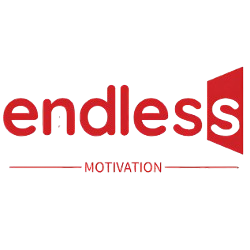You’re about to walk into a difficult conversation. Your heart is pounding. Your mind is racing through all the things that could go wrong. Then you remember your three-word reset: “Stay present now.”
Suddenly, your breathing slows. Your shoulders relax. You’re able to listen more clearly and respond more thoughtfully. This is the power of what I call the “three-word reset”—a simple phrase that can instantly shift your mental state and change how you show up in the world.
In our overloaded world, we’re drowning in information but starving for wisdom. We scroll through endless content while our brains desperately seek clarity. That’s where three-word quotes come in—they’re not just inspirational sayings, they’re practical tools for mental transformation.
This isn’t about positive thinking. It’s about cognitive restructuring. These three-word resets are like keyboard shortcuts for your brain, helping you access better versions of yourself when you need them most.
Why Three Words Work: The Science of Simplicity
The Magic of Cognitive Chunking
Your brain loves patterns, and three represents the simplest complete pattern. Think about it:
- “Ready, set, go”
- “Mind, body, spirit”
- “Stop, look, listen”
Three words create a complete thought that’s easy to process, remember, and recall—even under stress. They fit perfectly in your working memory without overwhelming it.
The Neural Pathway Effect
Every time you repeat a thought, you strengthen specific neural pathways. When you consistently think “I can’t do this,” you’re building a highway for self-doubt. But when you introduce “I am capable,” you start building new mental routes toward confidence.
The Emergency Override Function
During stressful moments, your prefrontal cortex—the rational part of your brain—can get hijacked by emotions. In this state, complex reasoning is difficult, but simple commands remain accessible. A three-word reset acts as an emergency override, helping you regain control quickly.
Your Mental Toolkit: Three-Word Resets for Every Situation
For Calming Anxiety
(Use when feeling overwhelmed or panicked)
- Breathe deeply now
- This will pass
- I am safe
- Ground yourself here
- One thing only
- Soften into now
- Release the tension
- Trust the process
- I am okay
- Just this moment
For Building Momentum
(Use when procrastinating or feeling stuck)
- Start small now
- Just begin anyway
- Action beats fear
- Progress not perfection
- Done is enough
- Momentum creates energy
- One step first
- Show up consistently
- Keep moving forward
- Build daily habits
For Boosting Confidence
(Use when doubting yourself)
- I am enough
- My voice matters
- I belong here
- Courage over comfort
- I am capable
- My perspective matters
- I am worthy
- Trust my instincts
- I’ve got this
- My presence matters
For Better Relationships
(Use during difficult conversations)
- Listen to understand
- Assume good intent
- Seek common ground
- Curiosity not judgment
- Heart open wide
- Boundaries with love
- Patience brings understanding
- Connection over being right
- Love them anyway
- We’re both learning
For Finding Purpose
(Use when feeling lost)
- Why this matters
- Small actions count
- Leave things better
- Serve with love
- My work matters
- Make difference daily
- Life has meaning
- My contribution counts
- Purpose fuels persistence
- Impact through action
Making It Stick: The Implementation System
Step 1: Identify Your Triggers
Notice what situations typically trigger unhelpful mental states:
- Monday morning dread
- Pre-meeting anxiety
- Afternoon energy slumps
- Conflict avoidance
- Creative blocks
Step 2: Choose Your Resets
Match specific three-word phrases to your triggers:
Trigger: Sunday night anxiety about the week
Reset: “One day only”
Trigger: Conflict avoidance
Reset: “Speak my truth”
Trigger: Creative block
Reset: “Create without judging”
Step 3: Create Implementation Intentions
Use the “When X, then Y” format:
“When I feel overwhelmed by my inbox, then I’ll reset with ‘One email first’“
“When I start comparing myself to others, then I’ll reset with ‘My journey matters’“
Step 4: Build Environmental Cues
Make your resets unavoidable:
- Set them as phone wallpapers
- Write them on sticky notes
- Program them as calendar reminders
- Place them where you’ll see them during trigger moments
Advanced Applications
For Leadership
Great leaders use simple phrases to shape culture:
- “Progress not perfection” encourages innovation
- “Team over individual” builds collaboration
- “Listen then lead” creates psychological safety
- “Clear is kind” improves communication
For Parenting
Three-word resets can transform family dynamics:
- “I see you” validates children’s experiences
- “We’ll solve together” teaches problem-solving
- “Feelings are welcome” creates emotional safety
- “Try your best” focuses on effort over outcome
For Creative Work
Combat creative resistance with:
- “Create without editing” silences the inner critic
- “Small steps daily” builds creative momentum
- “Done not perfect” helps ship work
- “Trust the process” maintains faith during uncertainty
The Ripple Effects
When you consistently use three-word resets, the benefits compound:
After one week: You notice yourself pausing before reacting
After one month: The resets start coming automatically
After three months: You’ve built new neural pathways
After six months: Your default responses have fundamentally shifted
Creating Your Custom Resets
The most powerful phrases are often ones you create yourself. Ask:
- What mental state do I want to cultivate?
- What’s the opposite of my current struggle?
- What would my best self say to me right now?
Then distill it into three words that resonate with you personally.
The Journey Forward
Remember that transformation happens through consistency, not perfection. Some days you’ll forget your resets. Other days they won’t seem to work. That’s normal.
The power isn’t in getting it right every time—it’s in returning to the practice again and again. Each time you use a three-word reset, you’re strengthening your ability to choose your response rather than being controlled by your reactions.
Start small. Pick one reset for one challenging situation. Use it consistently for a week. Notice what changes. Then build from there.
Your mind is waiting for new instructions. What three words will you give it today?
What three-word reset will you try this week? Share your chosen phrase and the situation where you’ll use it in the comments below. Let’s support each other’s mental transformations!

